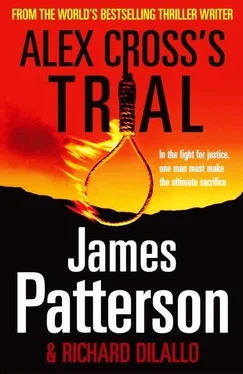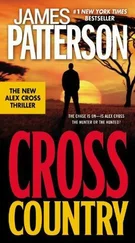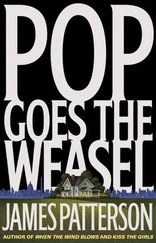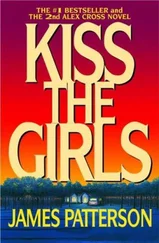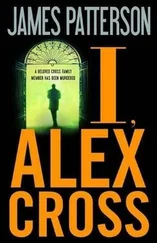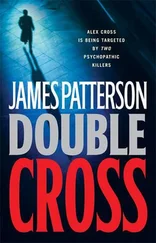WHILE I WAS FIGHTING JACOB, the rest of the fracas had begun to die down.
I watched Sam Sanders, owner of the general store, jump off his horse and run away into the darkness. I saw two other White Raiders flee in his wake, one of them limping badly.
“We’ll come back for you, niggers,” one yelled as he ran.
“You ain’t won. You just think you won,” another called.
A flurry of hoofbeats, and the Raiders were gone.
Colored people were scattered all over the yard, nursing wounds. Four white men lay trussed up in the dirt in front of Abraham’s house. I remembered Abraham talking about the earth running red with blood – and I saw blood, tiny rivers of it, here on his home ground.
On the porch near the tied-up men, Aunt Henry was dressing the leg wound of Lincoln Alexander Stephens, another of the original White Raiders who’d come calling tonight. Aunt Henry would take care of anyone, I reflected, regardless of race, creed, or degree of idiocy.
There seemed to be only one fatality – Leander Purneau, who lay flat on his back in the mud across the road from Abraham’s house. I wouldn’t miss him for a second.
Cousin Ricky told the captured Raiders he could kill them. Or he could tar and feather them. Or he could do what he was going to do: drive them into town and leave them, tied up, for the citizens of Eudora to find in the morning. “Tell ’em what we did to you,” he said. “Tell ’em there’s as many of us in the Quarters as there is of you in town. Don’t come out here again, not unless you’re invited. Which ain’t likely.”
Richard Nottingham brought his flat-wagon out of the woods. Brown hands helped him lift Leander Purneau’s body up into the bed. Nottingham’s shoulder was bandaged.
The battle was over. Eudora Quarters had won – at least for one night. It would not help me or the people of the Quarters to shoot one more bullet. It was finished.
And if I needed more proof, from around the house came Jacob Gill, his shirtfront stained red with blood from where I’d nicked his throat. He walked between two colored men to the wagon and climbed in the back without looking at me. So be it.
“Mr. Corbett!” I looked up. It was Ricky, standing at the front door.
“Come on back in,” he said. “Abraham has passed.”
At the door, Ricky put his hand on my shoulder. “You all right?”
“I am.”
Moody glanced up as we came in, then went back to reading from the Bible:
“And he said, ‘Jesus, remember me when you come into your kingly power.’ And Jesus said to him, ‘Truly I say to you, this day you shall be with me in Paradise.’”
Moody closed the Bible. She looked up and our eyes met.
We had already spoken our last words to each other.
“ARE YOU STAYING for Abraham’s funeral?” L.J. asked. “I’ll go with you, Ben.”
“I don’t think so,” I said. “Moody already knows how I feel about him. And it’s definitely time for me to head back… you know…”
“North!” L.J. said. “Go ahead, say the word! You’re headed back up to damn Yankeeland to become a damn Yankee again!”
We were standing near the table in the War Room, where we’d spent so many hours plotting our strategies for the White Raiders Trial. I was just finishing packing.
“I’ve gone around and around in my mind, L.J., and for the life of me I don’t know what I would do differently,” I said. “If I had the luxury of doing it over again.”
“You did as much as you could, Ben. Most men wouldn’t even have tried to help.”
I slipped my razor and shaving brush into the little leather kit and tucked it in my valise. “Help,” I said. “Is that what we did? I think some of the help I gave ended up hurting them.”
“Go ask ’em. Go to the Quarters,” L.J. said, “and ask ’em if they’re worse or better off for what you did.
“I can have a man drive you up to McComb so you can get the earlier train to Memphis,” L.J. went on.
“No need for that. I’ll just take the good old two-oh-five.” I snapped the catches on my valise. “I might stop over in Memphis tonight and hear a bit of that music I told you about.”
“Sure you don’t want to stay here a day or two more?” L.J. asked. “Rest up?”
I shook my head. “It’s time to go. I’ve said my good-byes, and I suspect I’ve worn out my welcome in Eudora. In fact, I’m sure of it. My own father said as much.”
THREE DAYS LATER I stepped off the train in Washington. My soles squeaked on the station’s marble floors when I walked across them, and I once again admired the acres of gold leaf and ranks of granite arches like victory gates. A man entering Washington through this portal was glorified and enlightened by the passage.
But one man, Ben Corbett, coming home after all these months, felt as lowly and insignificant as a cockroach scurrying along an outhouse floor.
My mind was a jumble, a clutter of worries. I couldn’t stop thinking about everything that had passed, and all the terrible things that might yet happen.
Meg had never answered my letters. I thought it likely that I would return to an empty house, shuttered and forlorn, my wife and children having gone off to live with her father in Rhode Island.
I could imagine the walls empty of pictures, white sheets covering the furniture, our modest lawn overgrown with foot-high grass and weeds.
These were my dark thoughts as I made my way through happy families on holiday, returning businessmen, flocks of government workers, Negro porters in red coats, and bellboys in blue caps.
“Mr. Corbett, sir,” a voice rang out down the platform. “Mr. Corbett! Mr. Corbett! ”
I stopped, searching the oncoming faces for the source of the greeting – if indeed it was a greeting.
“Mr. Corbett. Right here. I’m so glad I found you.”
He was a young man, short and slight, with wire-rimmed glasses and an intensely nervous stare. I had seen him somewhere before.
“Mr. Corbett, I’m Jackson Hensen. The White House?”
“Ah, Mr. Hensen,” I said. “What a surprise to see you here.”
He smiled hesitantly, as if not quite sure whether I’d made a joke. “Will you come with me, sir?”
“I’m sorry?” I looked down at his hand cupped on my elbow.
“The president would like to see you immediately.”
“Oh. Yes. Of course,” I said. “And I would like to see him. But first I thought I would see my family.”
“I’m sorry, Mr. Corbett. The president is at the White House right now. He’s waiting for you.”
So I followed Hensen outside to a splendid carriage drawn by the handsomest quartet of chestnuts I’d ever seen. All the way to the White House I kept thinking, Dear God, please see to it that Teddy Roosevelt isn’t the only person in Washington who wants to see me.
THEODORE ROOSEVELT JUMPED UP from his desk and came charging at me with such high spirits I was afraid he might bowl us both over.
“Welcome home, Captain!” he roared. When he pumped my hand I recalled that Roosevelt didn’t consider a handshake successful unless it resulted in physical pain.
“And all congratulations to you, sir, on a difficult job extremely well done,” he exclaimed. “The White Raiders Trial was a smashing success.”
“But Mr. President, we lost the case.”
“Of course you did,” he said. “I knew you would – technically – lose the case. But you won a tremendous victory all the same.”
“I don’t think I understand.”
He sank onto the sofa to the left of his desk and patted the seat cushion next to his, as if I were a faithful dog being summoned. I sat. The president continued.
Читать дальше
